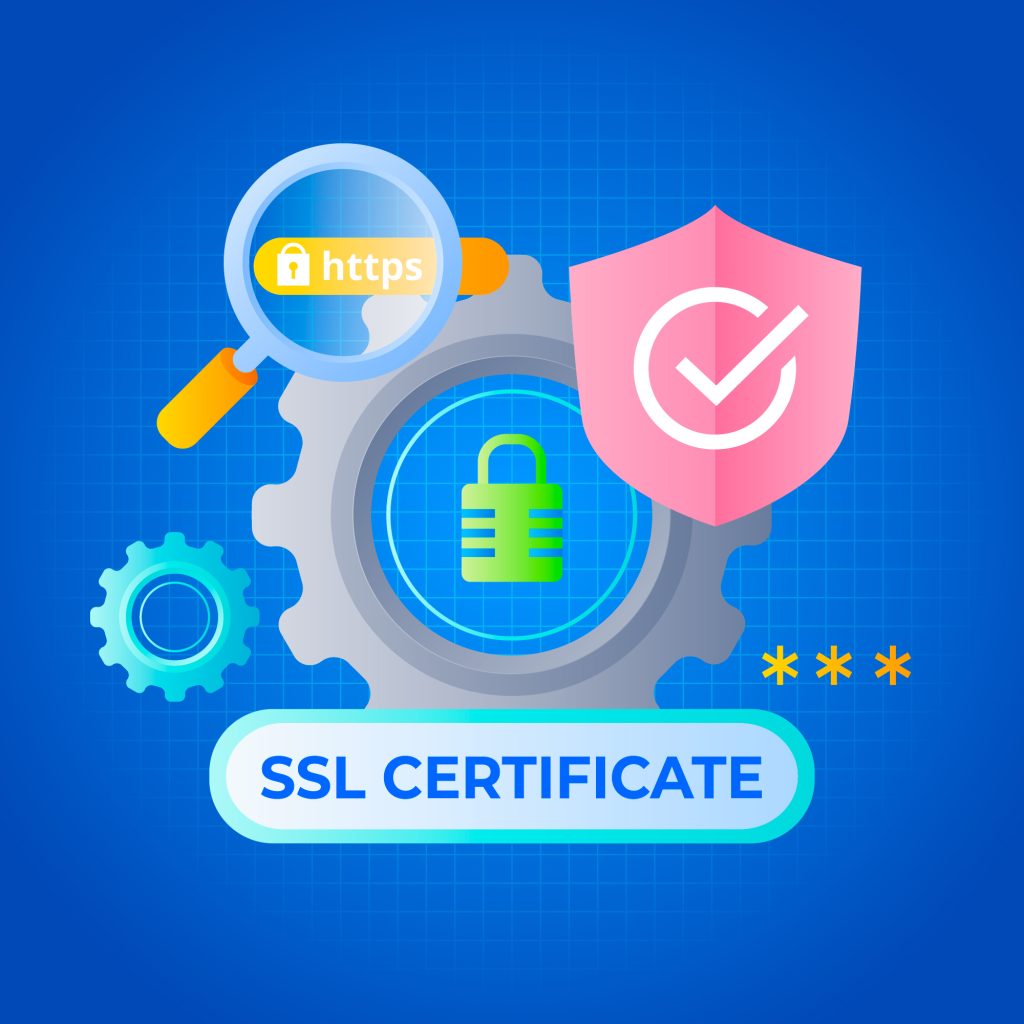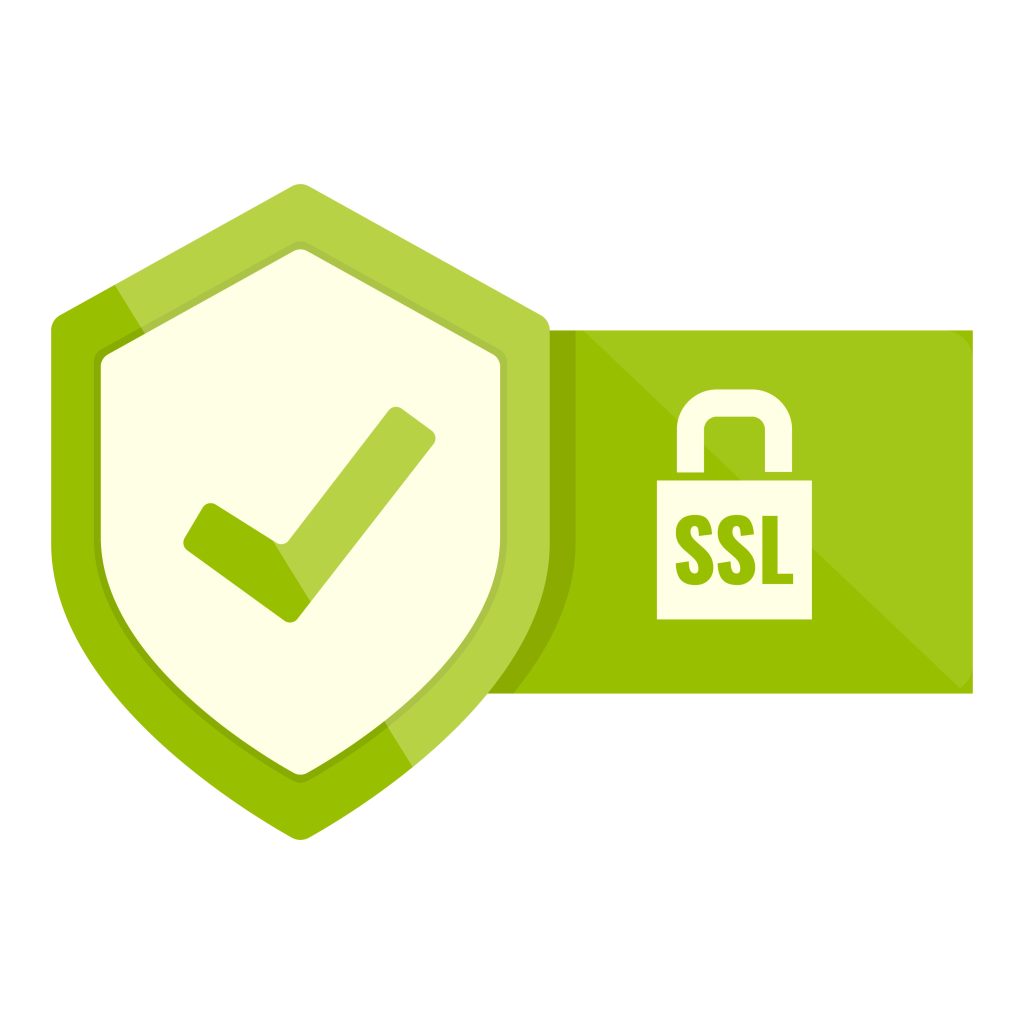Just imagine you’ve seen your website without an SSL Certificate and what will your reaction to it?
I know you will see the screen asking you to move to “Unsafe website”? You will try and if not work then you will contact your web hosting provider. Similarly, you can check these types of SSL Certificates and work as per the requirement.
SSL’s full form is Secure Sockets Layer.

An SSL certificate is a digital security certificate that authenticates a website’s identity and encrypts information sent to and from the website. It’s like a passport for your website, proving that it is who it says it is and that any information you send to it is protected.
There are many different types of SSL certificates available, each with its advantages and disadvantages. The best types of SSL certificates for your business will depend on your specific needs and requirements.
Here’s How it works:
- You connect to a website: When you enter a website address into your browser, your browser tries to connect to the website’s server.
- The server sends an SSL certificate: If the website has an SSL certificate, the server sends it to your browser.
- Your browser verifies the certificate: Your browser checks the certificate to make sure it is valid and issued by a trusted certificate authority.
- If the certificate is valid: If the certificate is valid, your browser establishes a secure connection with the server. This connection is encrypted, which means that any information you send to the server, such as your credit card number or login information, is scrambled so that only the server can decrypt it.
- If the certificate is invalid: If the certificate is invalid, your browser may warn you that the connection is not secure and you may not be able to proceed to the website.
Why SSL Certificates are important?
SSL certificates are important for several reasons:
- They protect your privacy: By encrypting information sent to and from websites, SSL Certificates help to protect your privacy from prying eyes.
- They build trust: When you see a website with an SSL certificate, you know that the website is taking steps to protect your information. This can help to build trust between you and the website.
- They are required for some websites: Some websites, such as those that process online payments, are required to have an SSL certificate.
What is a Digital Warranty in an SSL Certificate?
Generally, it’s important to protect the end user. Should we fail to inspect the information contained in a digital certificate and our failure causes the end user to lose money (in connection with a fraudulent online credit transaction), then the end–user can ask for recovery under our certificate warranty.
The warranty comes with peace of mind with the accuracy of the certificate information and allows merchants to sell more products. Moreover,
Benefits of a Digital Warranty:
Increased trust and confidence: It shows customers that you’re serious about security and willing to stand behind your SSL certificate.
Financial protection: In case of a covered incident, it mitigates potential financial losses for your customers.
Peace of mind: Knowing you have this safeguard can give you and your customers more confidence in the security of your website.
How to monitor whether the website has an SSL Certificate or not?
There are a few ways to tell if a website has an SSL certificate:
- Look for the padlock icon: Most browsers display a padlock icon in the address bar of websites that have an SSL certificate.
- Look for “https” in the address bar: Websites that have an SSL certificate will have “https” in the address bar, instead of “http“.
- Check the certificate: You can also check the website’s SSL certificate by clicking on the padlock icon in the address bar.
Which TLS/SSL Certificate Should I Choose?

Unfortunately, I can’t definitively tell you which TLS/SSL certificate is the best choice for you without more information about your specific needs. However, I can guide you through the decision-making process by asking some key questions:
- What type of website do you have?
- Personal website or blog: A basic Domain Validation (DV) certificate might suffice.
- E-commerce site or website handling sensitive data: An Organization Validation (OV) or Extended Validation (EV) certificate is recommended for building trust and securing user information.
- Multiple domains or subdomains: Consider a Wildcard or Multi-domain certificate for cost-efficiency.
- What level of validation do you need?
- DV certificate: Verifies domain ownership only, provides basic encryption, but doesn’t display company information.
- OV certificate: Requires additional verification like business registration and location, and displays basic company information in the browser.
- EV certificate: Most rigorous validation, verifies business details and legal existence, displays green address bar and full company information, and offers the highest level of trust and security.
- What is your budget?
DV certificates are typically the cheapest, while EV certificates are the most expensive. Consider the value of increased trust and security versus your budget constraints.
- What features are important to you?
Some certificates offer additional features like warranty coverage, malware scanning, or site seals. Choose a certificate that provides the features you need.
- Who are your website visitors?
If your audience is tech-savvy or expects high security, an EV certificate may be essential. For less tech-aware audiences, an OV certificate might be sufficient.
Note: There’s no “one size fits all” answer. Consider your specific requirements, weigh the pros and cons of each validation level, and compare features and pricing from different certificate authorities before making your choice.
Go through the most common types of SSL certificates:
- Domain Validation (DV) SSL Certificates: These certificates are the easiest and cheapest to obtain, but they provide the least amount of validation. They only verify that you control the domain name that you are requesting a certificate for. DV SSL certificates are a good option for websites that do not collect sensitive information, such as blogs or personal websites.
- Organization Validation (OV) SSL Certificates: These certificates provide more validation than DV certificates. In addition to verifying that you control the domain name, they also verify the organization that owns the domain name. OV SSL certificates are a good option for websites that collect sensitive information, such as e-commerce websites or online banking websites.
- Extended Validation (EV) SSL Certificates: These certificates provide the most validation of all SSL certificates. In addition to verifying that you control the domain name and the organization that owns the domain name, they also verify the physical address, phone number, and other information about the organization. This type of certificate is expensive and known for providing the highest level of trust and security. They are a good option for websites that collect very sensitive information, such as financial websites or healthcare websites.
Other types of SSL certificates include:
- Wildcard SSL Certificates: These certificates can secure multiple subdomains of a single domain name. For example, a wildcard SSL certificate for *<invalid URL removed> would secure all subdomains of <invalid URL removed>, such as [www<invalid URL removed>](https://www<invalid URL removed>), <invalid URL removed>, and blog<invalid URL removed>.
- Multi-Domain (SAN) SSL Certificates: These certificates can secure multiple domain names on a single certificate. This is a good option if you have multiple websites that you want to secure with an SSL certificate.
- Unified Communications Certificates (UCC): These certificates can secure multiple domain names and email addresses on a single certificate. This is a good option if you use a unified communications platform, such as Microsoft Exchange or Skype for Business.
Summary
When choosing an SSL certificate, it is important to consider your specific needs and requirements. If you are not sure which type of SSL certificate is right for you, you can consult with a security expert or cheap web hosting provider in USA like Hostripples.